#Holocaust Memorial Day 2023
Text

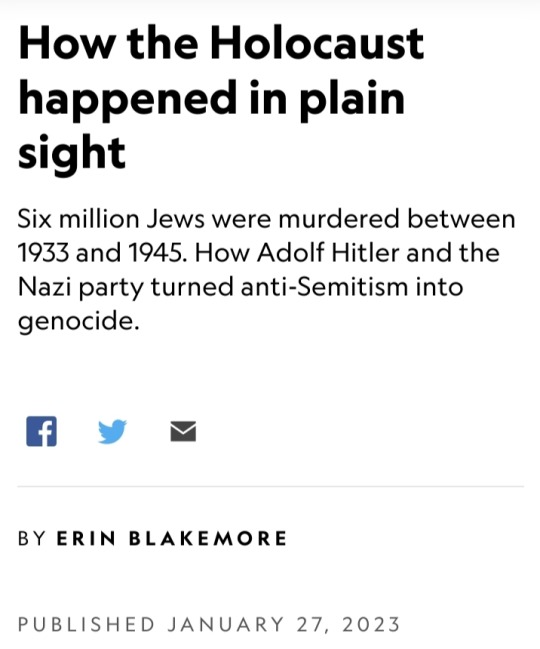
Six million Jews murdered. Millions more stripped of their livelihoods, their communities, their families, even their names.
The horrors of the Holocaust are often expressed in numbers that convey the magnitude of Nazi Germany’s attempt to annihilate Europe’s Jews.
The Nazis and their collaborators killed millions of people whom they perceived as inferior—including Jehovah’s Witnesses, gay men, people with disabilities, Slavic and Roma people, and Communists.
However, historians use the term “Holocaust”—also called the Shoah, or “disaster” in Hebrew—to apply strictly to European Jews murdered by the Nazis between 1933 and 1945.
No single statistic can capture the true terror of the systematic killing of a group of human beings—and given its enormity and brutality, the Holocaust is difficult to understand.
How did a democratically elected politician incite an entire nation to genocide? Why did people allow it to happen in plain sight? And why do some still deny it ever happened?
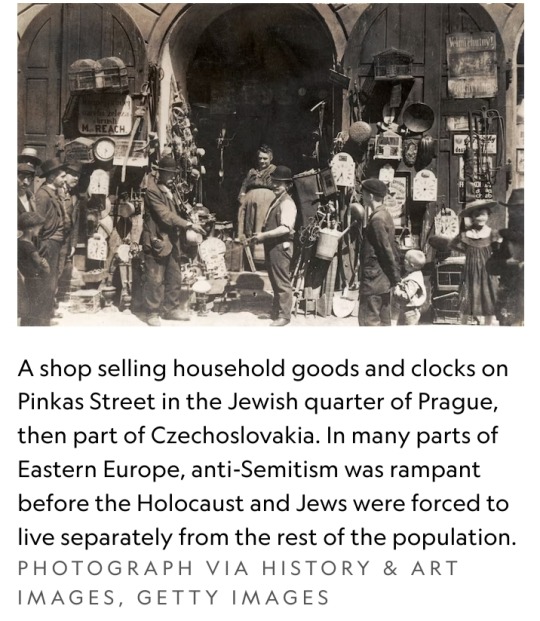

European Jews before the Holocaust
By 1933, about nine million Jews lived across the continent and in every European nation.
Some countries guaranteed Jews equality under the law, which enabled them to become part of the dominant culture.
Others, especially in Eastern Europe, kept Jewish life strictly separate.
Jewish life was flourishing, yet Europe’s Jews also faced a long legacy of discrimination and scapegoating.
Pogroms—violent riots in which Christians terrorized Jews—were common throughout Eastern Europe.
Christians blamed Jews for the death of Jesus, fomented myths of a shadowy cabal that controlled world finances and politics, and claimed Jews brought disease and crime to their communities.
The rise of Adolf Hitler
It would take one man, Adolf Hitler, to turn centuries of casual anti-Semitism into genocide.
Hitler rose to power as leader of the National Socialist German Workers’ Party, also known as the Nazi Party, in the 1920s.
Hitler harnessed a tide of discontent and unrest in Germany, which was slowly rebuilding after losing the First World War.
The nation had collapsed politically and economically, and owed heavy sanctions under the Treaty of Versailles.
The Nazi party blamed Jews for Germany’s troubles and promised to restore the nation to its former glory.
Hitler was democratically elected to the German parliament in 1933, where he was soon appointed as chancellor, the nation’s second-highest position.
Less than a year later, Germany’s president died, and Hitler seized absolute control of the country.
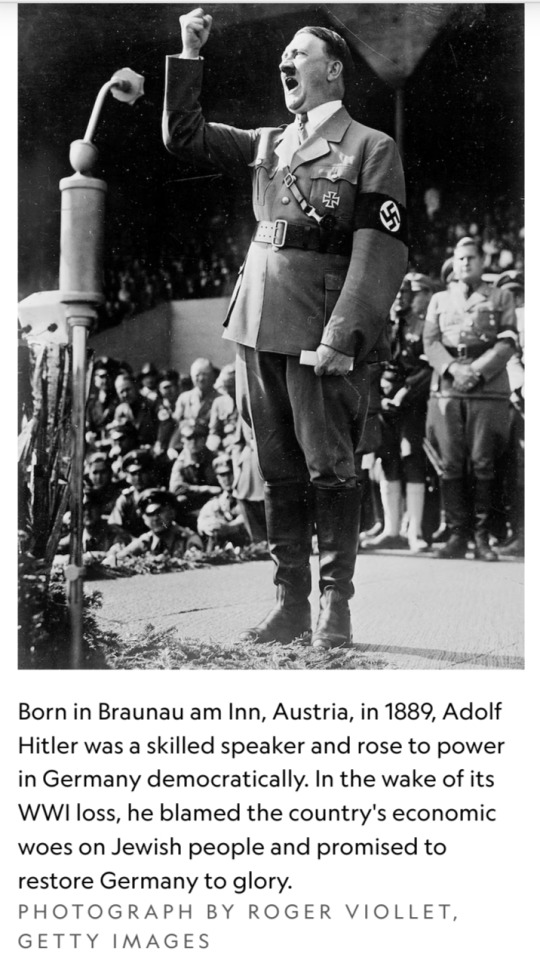
The early Nazi regime
Immediately after coming to power, the Nazis promulgated a variety of laws aimed at excluding Jews from German life—defining Judaism in racial rather than religious terms.
Beginning with an act barring Jews from civil service, they culminated in laws forbidding Jews from German citizenship and intermarriage with non-Jews.
These were not just domestic affairs: Hitler wanted to expand his regime and, in 1939, Germany invaded Poland.
It marked the beginning of the Second World War—and the expansion of the Nazis’ anti-Jewish policies.
German officials swiftly forced hundreds of thousands of Polish Jews into crowded ghettoes, and with the help of locals and the German military, specially trained forces called the Einsatzgruppen began systematically shooting Jews and other people the regime deemed undesirable.
In just nine months, these mobile murder units shot more than half a million people in a “Holocaust by bullets” that would continue throughout the war.
But Hitler and his Nazi officials were not content with discriminatory laws or mass shootings.
By 1942, they agreed to pursue a “final solution” to the existence of European Jews:
They would send the continent’s remaining 11 million Jews east to death camps where they would be forced into labor and ultimately killed.
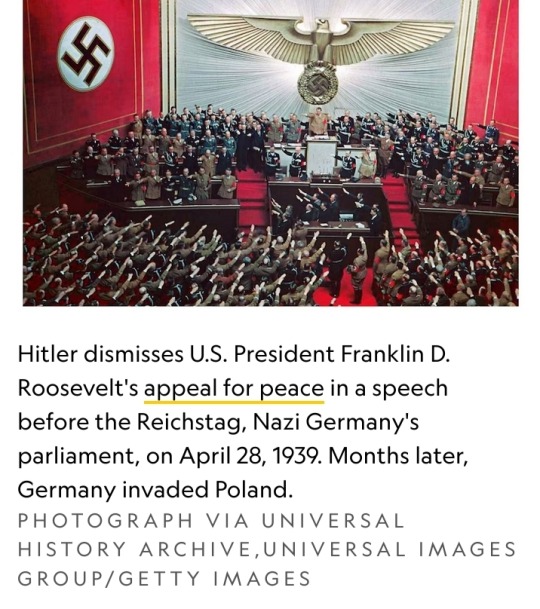
Genocide in plain sight
By characterizing their actions as the “evacuation” of Jews from territories that rightfully belonged to non-Jewish Germans, the Nazi operation took place in plain sight.
Though thousands of non-Jews rescued, hid, or otherwise helped those targeted by the Holocaust, many others stood by indifferently or collaborated with the Nazis.
With the help of local officials and sympathetic civilians, the Nazis rounded up Jews, stripped them of their personal possessions, and imprisoned them in more than 44,000 concentration camps and other incarceration sites across Europe.
Non-Jews were encouraged to betray their Jewish neighbors and move into the homes and businesses they left behind.
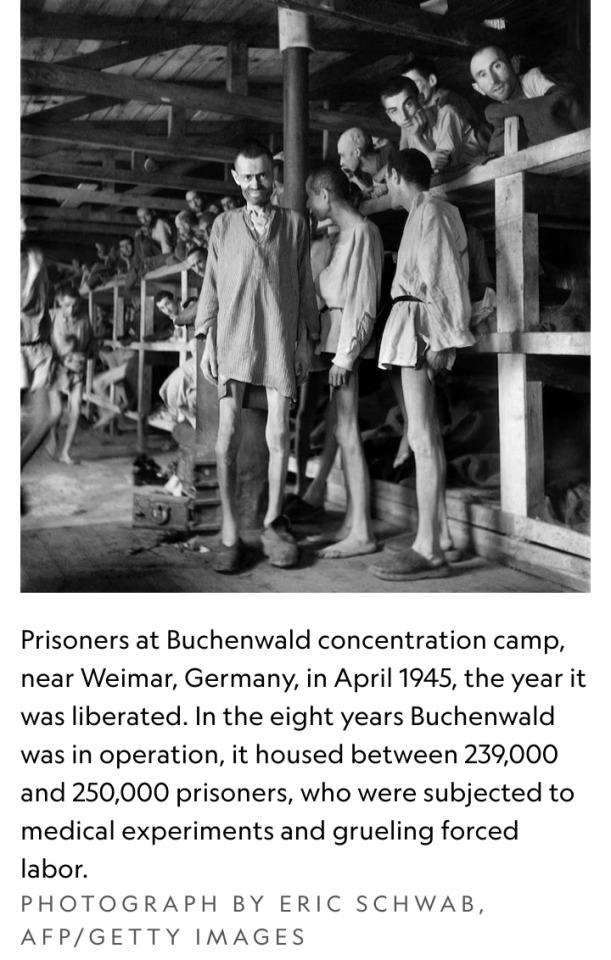
Dachau, which opened near Munich in 1933, was the first concentration camp.
Five others—Auschwitz-Birkenau, Chelmno, Belzec, Sobibor, and Treblinka—were designated as killing centers, where most Jews were immediately murdered upon arrival.
The killings took place in assembly-line fashion:
Mass transports of Jews were unloaded from train cars and “selected” into groups based on sex, age, and perceived fitness.
Those selected for murder were taken to holding areas where they were told to set aside their possessions and undress for “disinfection” or showers.
In reality, they were herded into specially designed killing chambers into which officials pumped lethal carbon monoxide gas or a hydrogen cyanide pesticide called Zyklon B that poisoned its victims within minutes.

Credit: Zyklon B (Wikipedia)
The earliest Holocaust victims were buried in mass graves. Later, in a bid to keep the killings a secret, corpses were burned in large crematoria.
Some Jews were forced to participate in the killings, and then were themselves executed to maintain secrecy.
The victims’ clothing, tooth fillings, possessions, and even hair was stolen by the Nazis.
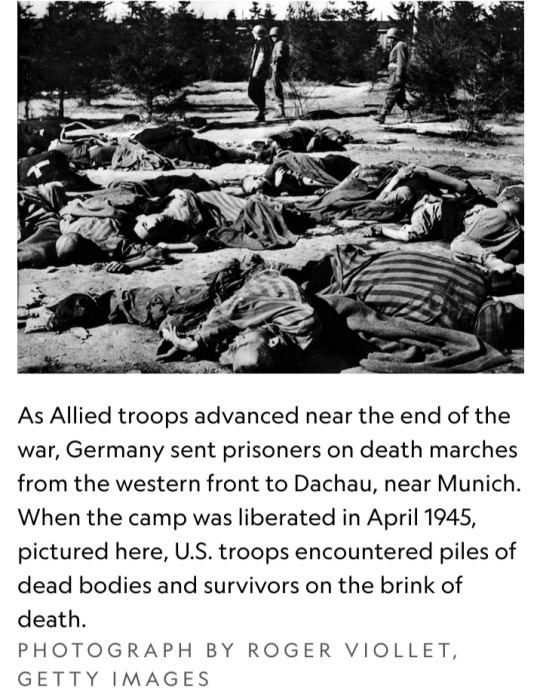
Life in the camps
Those not chosen for death were ritually humiliated and forced to live in squalid conditions.
Many were tattooed with identification numbers and shorn of their hair.
Starvation, overcrowding, overwork, and a lack of sanitation led to rampant disease and mass death in these facilities.
Torture tactics and brutal medical experiments made the camps a horror beyond description.
“It is not possible to sink lower than this; no human condition is more miserable than this, nor could it conceivably be so,” wrote Auschwitz survivor Primo Levi in his 1947 memoir.
“Nothing belongs to us any more…if we speak, they will not listen to us, and if they listen, they will not understand. They will even take away our name.”
But despite almost inconceivable hardships, some managed to resist.
“Our aim was to defy Hitler, to do everything we [could] to live,” recalled Majdanek and Auschwitz survivor Helen K. in a 1985 oral history. “He [wanted] us to die, and we didn’t want to oblige him.”
Jews resisted the Holocaust in a variety of ways, from going into hiding to sabotaging camp operations or participating in armed uprisings in ghettoes and concentration camps.
Other forms of resistance were quieter, like stealing food, conducting forbidden religious services, or simply attempting to maintain a sense of dignity.
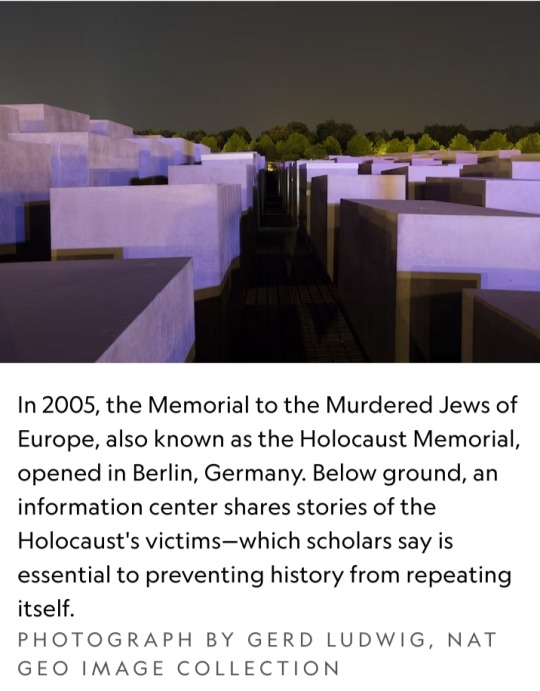
The aftermath of the Holocaust
As World War II drew to a close in 1944 and 1945, the Nazis attempted to cover up their crimes, burning documents, dismantling death camp sites, and forcing their remaining prisoners on brutal death marches to escape the advancing Allies.
They didn’t succeed: As they liberated swaths of Europe, Allied troops entered camps piled high with corpses and filled, in some cases, with starving, sick victims.
The evidence collected in these camps would become the basis of the Nuremberg Trials, the first-ever international war crimes tribunal.
In the war’s aftermath, the toll of the Holocaust slowly became clear.
Just one out of every three European Jews survived, and though estimates vary, historians believe at least six million Jews were murdered.
Among them were an estimated 1.3 million massacred by the Einsatzgruppen; approximately a million were murdered at Auschwitz-Birkenau alone.
Many survivors had nowhere to go. Poland had Europe’s largest Jewish population before the war but lost 93 percent of that population in just five years.
Entire villages and communities were wiped out and families scattered across Europe.
Labeled “displaced persons,” survivors attempted to rebuild their lives. Many left Europe for good, emigrating to Israel, the United States, or elsewhere.
Holocaust denial
Despite the enormity of evidence, some people sowed misinformation about the Holocaust, while others denied it happened at all.
Holocaust denial persists to this day, even though it is considered a form of antisemitism and is banned in a variety of countries.
How to counter the hate? "Educating about the history of the genocide of the Jewish people and other Nazi crimes offers a robust defence against denial and distortion," concluded the authors of a 2021 United Nations report on Holocaust denial.
Though the number of Holocaust survivors has dwindled, their testimonies offer crucial evidence of the Holocaust’s horrors.
“The voices of the victims—their lack of understanding, their despair, their powerful eloquence or their helpless clumsiness—these can shake our well-protected representation of events,” said Saul Friedländer, a historian who survived the Holocaust and whose parents were murdered at Auschwitz, in a 2007 interview with Dissent Magazine.
“They can stop us in our tracks. They can restore our initial sense of disbelief, before knowledge rushes in to smother it.”
#Holocaust#Nazi#European Jews#Jews#Shoah#World War II#concentration camps#genocide#Germany#Poland#Europe#Allied Forces#Nazi Party#National Socialist German Workers’ Party#Austria#Holocaust Memorial#Memorial to the Murdered Jews of Europe#Nuremberg Trials#Holocaust Memorial Day 2023
12 notes
·
View notes
Photo
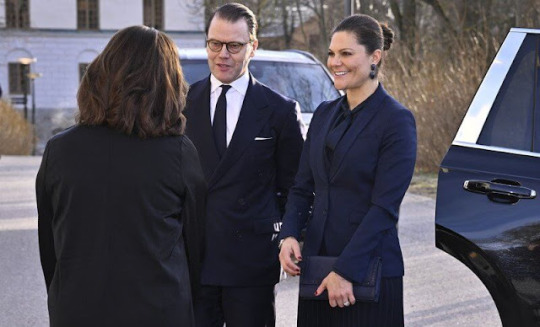
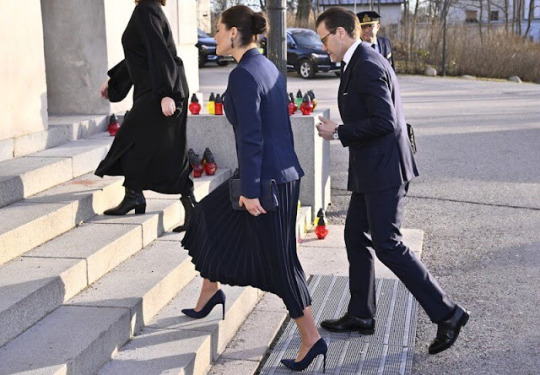
January 27, 2023: Crown Princess Victoria and Prince Daniel attend a memorial service at Eric Ericsonhallen in Stockholm (Skeppsholmen Church) in observance of International Holocaust Remembrance Day.
#crown princess victoria#prince daniel#swedish royal family#january 2023#holocaust remembrance day#memorial services#church services#daniel and victoria#victoria's engagements#mine
23 notes
·
View notes
Text
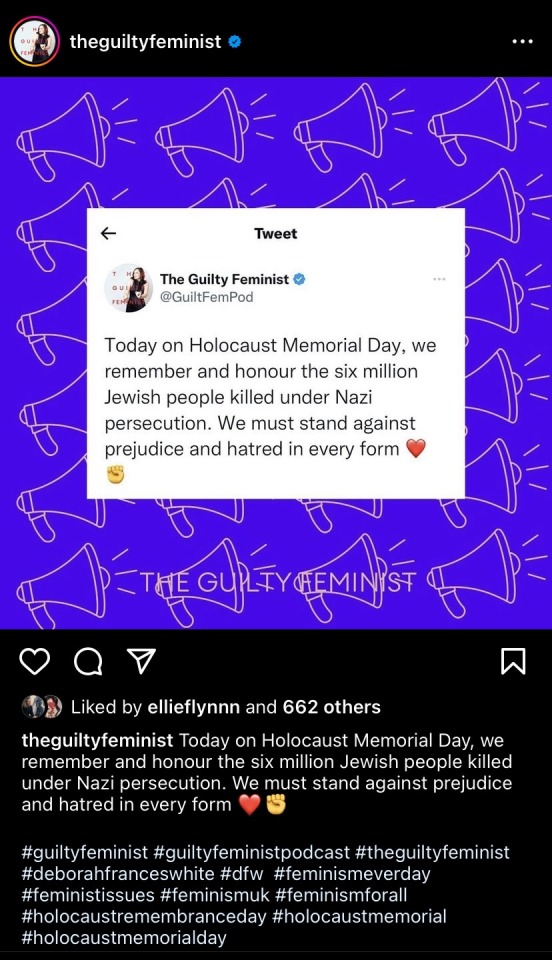
#guilty feminist#the guilty feminist#feminism#feminist#women’s rights#deborah frances white#human rights#instagram#holocaust Memorial Day#holocaust remembrance#27 Jan 2023
1 note
·
View note
Text
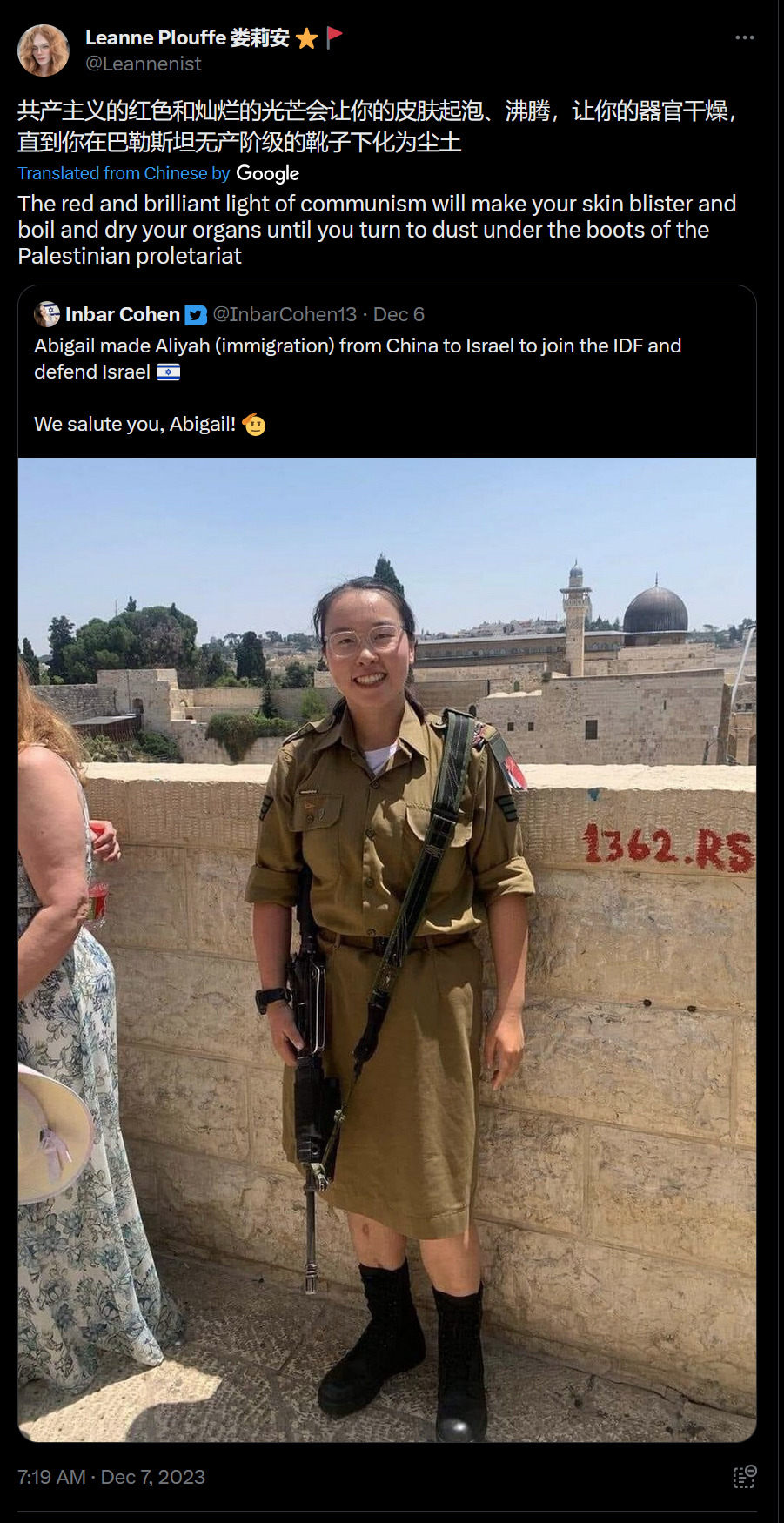
link
I can't properly put into words the amount of disgust that I feel seeing someone who looks like she could be my cousin fight for a genocidal occupational force like Israel but I will say this.
If you are Chinese, Korean, Japanese or any one of these Asian ethnicities that the West deem "acceptable" and you align yourselves with western-backed racial supremacy, you are making fools of yourselves. You have fallen prey to the myth of the "model minority" and you are suckers for it.
The premise of racial supremacy is based on exclusivity. And here's a dose of reality - the myth of the "model minority" is nothing but a tactic to placate you. To sow divide in the ranks of people of colour. To artificially manufacture another realm of racial supremacy in minorities so that you're distracted from how we all suffer under colonialism.
Did we all forget about the skyrocketing of sinophobia in the wake of the first COVID outbreak? The transformation of Chinese people into fiends with barbaric eating customs, poor hygiene, and mass conspiracy to infect the world with biological weapons?
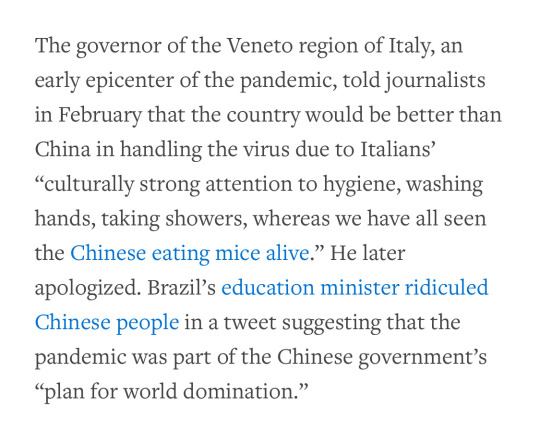
link
What about the hate-crimes? The attacks in the street against anyone visibly asian? The rampant discrimination and ostracisation from society?
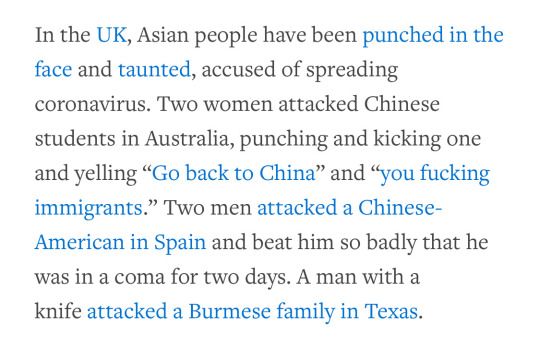
In 2020, Donald Trump referred to COVID-19 as "The Chinese Virus", "Kung-flu" at a campaign rally to raucous applause, a chilling echo of the times where fears of the "Yellow Peril" had the western world in a stranglehold.
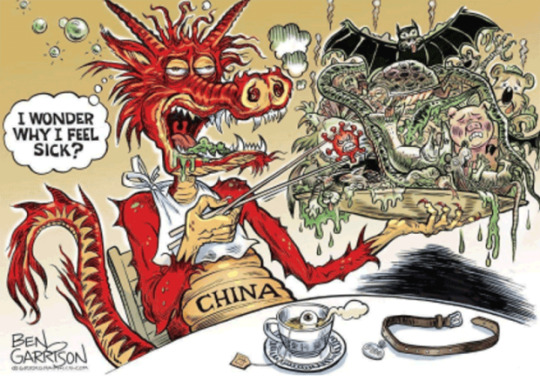
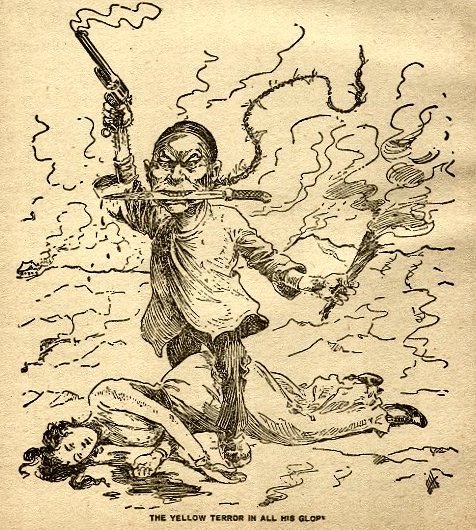
For all that Chinese people have been lauded as "prodigies" and "well-mannered workers", the moment our existence was incovenient, were were nothing more than another target. And although Chinese suffering then wasn't close to the scale of suffering that Palestinians now endure, we all received a reminder on what it was like to be in the world's crosshairs.
Now, in 2023, Biden dismisses death tolls as unreliable and remains proudly Zionist even after Netanyahu described the genocide Israel is inflicting upon Palestine as the "struggle between the children of light and the children of darkness, between humanity and the law of the jungle." At the same time, Palestinians are being compared to fleeing rats in a gesture of dehumanisation that mirrors how the Nazis portrayed Jews during the Holocaust.

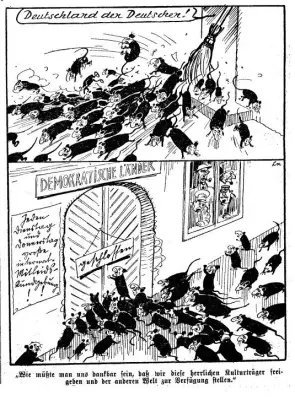
link
And let's not think Abigail's Jewishness will save her, not when it's been proven that Israel has administered contraceptives to Ethiopian Jewish immigrants without their consent. Racial supremacy is an exclusive club that never stops getting smaller, and there is nothing that you, as a minority, will ever be able to do to fit in. One day, you too will be a target and there'll be nothing you can do but blame yourself. After all - it's already happened.
So shame on Abigail. Truly. With the memory of knowing what it's like to be targeted for factors out of your control fresh in her mind, she happily fights to do the same to others. And that says more about her than I ever will be able to.
#this may be long winded and wordy but i had to get this off my chest#as a chinese-australian woman who does her best to be proud of her chinese heritage#this was a slap in the face#and ive tried lately to not inject my own voice into discussion about palestine bc i know there are people out there#who are more educated and more equipped with voices that need elevating more than mine do#but i think im allowed to talk about how enraged this made me#god.#free palestine#palestine#cw: mentions of sinophobia#colonialism
1K notes
·
View notes
Text
re: October 7
Regardless of what idiots who think Hamas is a fun progressive resistance org have to say, the fact is that the October 7 massacre is going to be something Jews talk about, mourn, and commemorate for the next X,000 years. Long after there is a place called Israel, and a group called Hamas--and frankly, anything resembling the world as we know it today--there will be Jews taking a moment to commemorate the events of October 7, 2023.
And that's not even a FUCK THE HATERS AM YISRAEL CHAI statement. It's not a pro-Israel statement or an anti-Israel statement or a pro-Palestine statement or an anti-Palestine statement or a Whatever Simplistic Binaries We've Tried to Impose on This Situation statement. It's not even a political statement.
Speaking as a Jewish Historian, the Jews are a people with a long memory. We still commemorate revolts and massacres and attempted massacres of the Jewish people that went down over 2500 years ago like they happened yesterday. It's not an accident that, when the Warsaw Ghetto Uprising went down, the Zionist participants* immediately drew parallels between themselves and the crazy fucking patriarchal spouse and child-murdering zealots who held out against the Romans at Masada in 74 CE. Jews forget nothing, from the Babylonian Exile, to the Crusade-era massacres, to Jednabwe.
Jewish memory is hardly an impeccable source of historical knowledge (see Yerushalmi's Zakhor: Jewish History and Jewish Memory); but we forget nothing. We will remember October 7, and some day we’ll probably have a commemorative cookie about it. It will be the subject of books and dissertations, and studies of post-Holocaust and post-modern anti-Semitism. The Jews will insist on learning from this, about this, and re-interpreting this. Forever.
Civilizations, groups, nations; they can keep hating and trying to destroy the Jewish people; but 2000, 3000 years from now, it will be by the grace of Jewish ethnoreligious memory traditions that anyone will remember their names.
*it was staged and carried out by the Jewish Fighting Organization, which was a politically pluralistic org. Everyone from the anti-Zionist Bund to the centrist General Zionists belong to it. Except for the Revisionists lol
ETA: This post is not a secret rhetorical tool to express stealth support for Israeli war crimes in Gaza. Or any level of support for violence against Palestinians. Ever. I hate that I even have to add that; but like I said: anti-Semitism's gone pomo.
Also, my mental soundtrack while writing this post.
331 notes
·
View notes
Text
80th Anniversary of the Warsaw Ghetto Uprising: "The World Has to Know That We Did Not Go Like Lambs to the Slaughter."
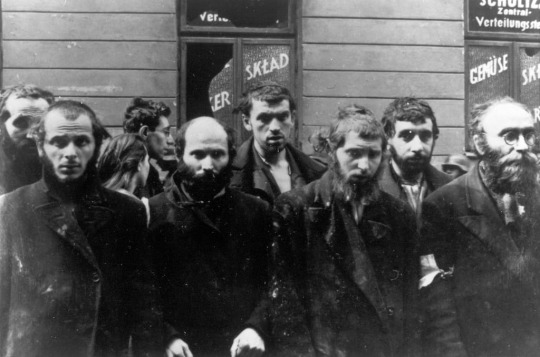
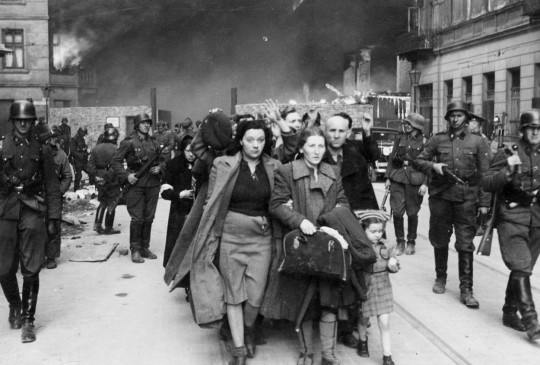

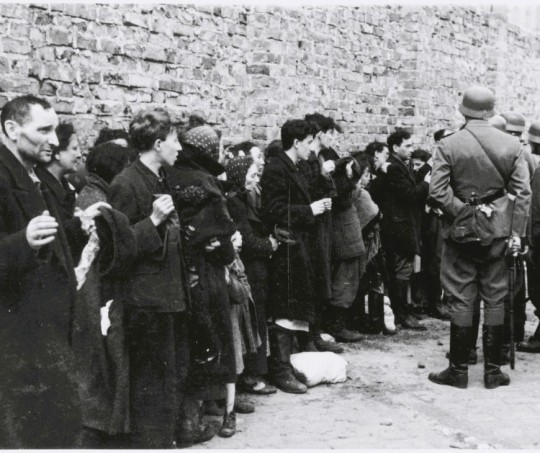
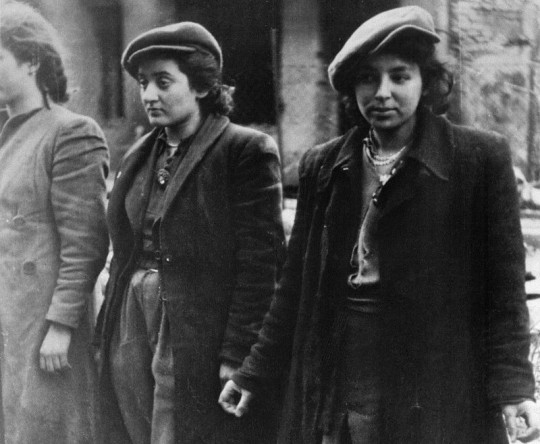
April 19th, 1943 - May 16th, 1943
Warsaw, Poland
“The question is not why all the Jews did not fight, but how so many of them did. Tormented, beaten, starved, where did they find the strength, spiritual and physical, to resist?” – Elie Wiesel
In the morning of April 19th, 1943, on what would be the first night of Passover, the Warsaw Ghetto Uprising began. German troops and SS entered the ghetto to deport its surviving inhabitants to the death camps.
In the summer of 1942, as Jews living in the Warsaw ghetto were deported to Treblinka, reports that made their way back quickly made it clear that "resettlement" meant mass-murder. In response to this, Jews citizens in the ghetto began forming organized resistance forces; the Jewish Combat Organization (ŻOB) and the Jewish Military Union (ŻZW).
Following the January 1943 success of a smaller-scale resistance preventing a deportation attempt, an act that led to the suspension of such deportation efforts by the Nazis, the residents began to secretly build subterranean tunnels and shelters in preparation for a full-scale uprising.
Throughout April rumours swirled of a final deportation of the ghetto's remaining Jews. On the 18th it became clear that German forces, reinforced with artillery and tanks, were moving in to carry out their final action. The alarm was raised, and residents retreated to their underground shelters. They would remain here for the duration of the uprising, refusing to surrender themselves to deportation.
A group of around 700 Jewish resistance fighters, made up of the ŻOB and ŻZW and led by 24-year-old Mordechai Anilevitch, joined together to stage what would be their final stand against the Nazis. These brave young people were malnourished and lacked proper military training, they were equipped with nothing but poor-quality or even homemade weapons and their bare hands.
By contrast German forces numbered 2000, they were well-equipped and well-trained and had advanced knowledge of the existence of these resistance groups.
Despite this stark imbalance, on the first day of the uprising the ragtag Jewish fighters met the invaders head on and successfully forced the Nazis to retreat outside the city walls.
Amongst all of the chaos and destruction all around them, the Jews hiding in the tunnels and bunkers gathered together to celebrate Passover with what little they had, breaking homecooked matzah and drinking illicitly obtained wine.
The Warsaw Ghetto Uprising held strong for a full 27 days, coming to an end on May 16th, 1943. Unable to gain a full advantage, the Germans had resorted to burning the Warsaw Ghetto to the ground in an attempt flush out those in hiding so they could be rounded up.
In the months following the official end of the uprising some Jews remained hiding out in the rubble, periodically attacking German police on patrol.
This was the largest uprising by Jews during World War II and the first significant urban revolt against German occupation in Europe. It inspired many more uprisings, especially amongst Jews in camps and Ghettos.
May Their Memories Be a Revolution
Learn More:
Warsaw Ghetto Uprising | Holocaust Encyclopedia
Holocaust Survivors Describe the Last Passover in the Warsaw Ghetto
Tuesday, Nissan 27, 5783 / April 18, 2023 - Jewish Calendar - On This Day
#jumblr#jewish#judaism#yom hashoah#holocaust remembrance day#the shoah#shoah#shoah remembrance day#holocaust#the holocaust#shoah mention#holocaust mention#antisemitism#antisemitism tw#tw antisemitism#jewish history#nazi tw#warsaw#warsaw ghetto#warsaw ghetto uprising#may their memories be a blessing#may their memories be a revolution#a few days early
2K notes
·
View notes
Text
Today, January 27, 2024, is Holocaust Remembrance Day, which commemorates the 6 million jewish people and other minorities who were victims of the Holocaust. This day always brings feelings of sorrow, loss, anger, fear, and resilience to the Jewish community, yet increased antisemitism from 2023-2024 will likely make those feelings even stronger.
If you can do nothing else, please reach out to a jewish friend or family member and show them that you care. A few kind words can go a long way.
If you are able to, consider donating to The Blue Card. They focus on providing aid to Holocaust survivors in Israel, including fulfilling medical needs, accessibility needs, providing food, helping with financial assistance, etc. They have been supported by the United States Holocaust Memorial Museum.
The second link also includes a list of resources for Holocaust survivors and their families and ways that people can help them. It is focused on resources in the USA, but there are some resources outside of the USA as well.
https://bluecardfund.org/
https://www.ushmm.org/remember/holocaust-survivors/resources
I am so, so proud of every Jewish person today just for living. We will not forget the atrocities that we went through and we will not let anyone else forget. Never again will this happen. Am yisrael chai ✡
123 notes
·
View notes
Text
Denazification, truth and reconciliation, and the story of Germany's story
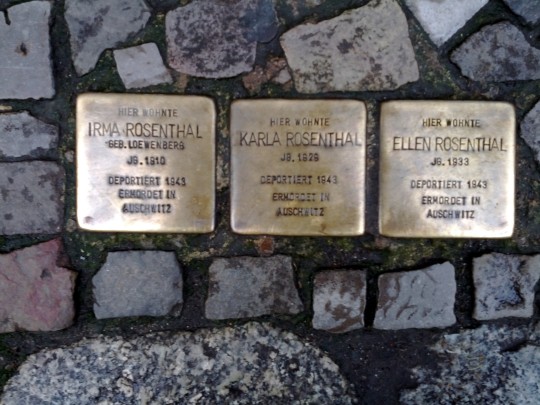
Germany is the “world champion in remembrance,” celebrated for its post-Holocaust policies of ensuring that every German never forgot what had been done in their names, and in holding themselves and future generations accountable for the Nazis’ crimes.
All my life, the Germans have been a counterexample to other nations, where the order of the day was to officially forget the sins that stained the land. “Least said, soonest mended,” was the Canadian and American approach to the genocide of First Nations people and the theft of their land. It was, famously, how America, especially the American south, dealt with the legacy of slavery and Jim Crow.
Silence begets forgetting, which begets revisionism. The founding crimes of our nations receded into the mists of time and acquired a gauzy, romantic veneer. Plantations — slave labor camps where work was obtained through torture, maiming and murder — were recast as the tragiromantic settings of Gone With the Wind. The deliberate extinction of indigenous peoples was revised as the “taming of the New World.” The American Civil War was retold as “The Lost Cause,” fought over states’ rights, not over the right of the ultra-wealthy to terrorize kidnapped Africans and their descendants into working to death.
This wasn’t how they did it in Germany. Nazi symbols and historical revisionism were banned (even the Berlin production of “The Producers” had to be performed without swastikas). The criminals were tried and executed. Every student learned what had been done. Cash reparations were paid — to Jews, and to the people whom the Nazis had conquered and brutalized. Having given in to ghastly barbarism on an terrifyingly industrial scale, the Germans had remade themselves with characteristic efficiency, rooting out the fascist rot and ensuring that it never took hold again.
But Germany’s storied reformation was always oversold. As neo-Nazi movements sprang up and organized political parties — like the far-right Alternative für Deutschland — fielded fascist candidates, they also took to the streets in violent mobs. Worse, top German security officials turned out to be allied with AfD:
https://www.wsws.org/en/articles/2018/08/04/germ-a04.html
Neofascists in Germany had fat bankrolls, thanks to generous, secret donations from some of the country’s wealthiest billionaires:
https://www.spiegel.de/international/germany/billionaire-backing-may-have-helped-launch-afd-a-1241029.html
And they broadened their reach by marrying their existing conspiratorial beliefs with Qanon, which made their numbers surge:
https://www.thedailybeast.com/how-fringe-groups-are-using-qanon-to-amplify-their-wild-messages
Today, the far right is surging around Europe, with the rot spreading from Hungary and Poland to Italy and France. In an interview with Jacobin’s David Broder, Tommaso Speccher a researcher based in Berlin, explores the failure of Germany’s storied memory:
https://jacobin.com/2023/07/germany-nazism-holocaust-federal-republic-memory-culture/
Speccher is at pains to remind us that Germany’s truth and reconciliation proceeded in fits and starts, and involved compromises that were seldom discussed, even though they left some of the Reich’s most vicious criminals untouched by any accountability for their crimes, and denied some victims any justice — or even an apology.
You may know that many queer people who were sent to Nazi concentration camps were immediately re-imprisoned after the camps were liberated. Both Nazi Germany and post-Nazi Germany made homosexuality a crime:
https://time.com/5953047/lgbtq-holocaust-stories/
But while there’s been some recent historical grappling with this jaw-dropping injustice, there’s been far less attention given to the plight of the communists, labor organizers, social democrats and other leftists whom the Nazis imprisoned and murdered. These political prisoners (and their survivors) struggled mightily to get the reparations they were due.
Not only was the process punitively complex, but it was administered by bureaucrats who had served in the Reich — the people who had sent them to the camps were in charge of deciding whether they were due compensation.
This is part of a wider pattern. The business-leaders who abetted the Reich through their firms — Siemens, BMW, Hugo Boss, IG Farben, Volkswagon — were largely spared any punishment for their role in the the Holocaust. Many got to keep the riches they acquired through their part on an act of genocide.
Meanwhile, historians grappling with the war through the “Historikerstreit” drew invidious comparisons between communism and fascism, equating the two ideologies and tacitly excusing the torture and killing of political prisoners (this tale is still told today — in America! My kid’s AP history course made this exact point last year).
The refusal to consider that extreme wealth, inequality, and the lust for profits — not blood — provided the Nazis with the budget, materiel and backing they needed to seize control in Germany is of a piece with the decision not to hold Germany’s Nazi-enabling plutocrats to account.
The impunity for business leaders who collaborated with the Nazis on exploiting slave labor is hard to believe. Take IG Farben, a company still doing a merry business today. Farben ran a rubber factory on Auschwitz slave labor, but its executives were frustrated by the delays occasioned by the daily 4.5m forced march from the death-camp to its factory:
https://pluralistic.net/2023/06/02/plunderers/#farben
So Farben built Monowitz, its own, private-sector concentration camp. IG Farben purchased 25,000 slaves from the Reich, among them as many children as possible (the Reich charged less for child slaves).
Even by the standards of Nazi death camps, Monowitz was a charnel house. Monowitz’s inmates were worked to death in just three months. The conditions were so brutal that the SS guards sent official complaints to Berlin. Among their complaints: Farben refused to fund extra hospital beds for the slaves who were beaten so badly they required immediate medical attention.
Farben broke the historical orthodoxy about slavery: until Monowitz, historians widely believed that enslavers would — at the very least — seek to maintain the health of their slaves, simply as a matter of economic efficiency. But the Reich’s rock-bottom rates for fresh slaves liberated Farben from the need to preserve their slaves’ ability to work. Instead, the slaves of Monowitz became disposable, and the bloodless logic of profit maximization dictated that more work could be attained at lower prices by working them to death over twelve short weeks.
Few of us know about Monowitz today, but in the last years of the war, it shocked the world. Joseph Borkin — a US antitrust lawyer who was sent to Germany after the war as part of the legal team overseeing the denazification program — wrote a seminal history of IG Farben, “The Crime and Punishment of I.G. Farben”:
https://www.scribd.com/document/517797736/The-Crime-and-Punishment-of-I-G-Farben
Borkin’s book was a bestseller, which enraged America’s business lobby. The book made the connection between Farben’s commercial strategies and the rise of the Reich (Farben helped manipulate global commodity prices in the runup to the war, which let the Reich fund its war preparations). He argued that big business constituted a danger to democracy and human rights, because its leaders would always sideline both in service to profits.
US companies like Standard Oil and Dow Chemicals poured resources into discrediting the book and smearing Borkin, forcing him into retirement and obscurity in 1945, the same year his publisher withdrew his book from stores.
When we speak of Germany’s denazification effort, it’s as a German program, but of course that’s not right. Denazification was initiated, designed and overseen by the war’s winners — in West Germany, that was the USA.
Those US prosecutors and bureaucrats wanted justice, but not too much of it. For them, denazification had to be balanced against anticommunism, and the imperatives of American business. Nazi war criminals must go on trial — but not if they were rocket scientists, especially not if the USSR might make use of them:
https://en.wikipedia.org/wiki/Wernher_von_Braun
Recall that in the USA, the bizarre epithet “premature antifascist” was used to condemn Americans who opposed Nazism (and fascism elsewhere in Europe) too soon, because these antifascists opposed the authoritarian politics of big business in America, too:
https://www.thenation.com/article/archive/premature-antifascist-and-proudly-so/
When 24 Farben executives were tried at Nuremberg for the slaughter at Monowitz, then argued that they had no choice but to pursue slave labor — it was their duty to their shareholders. The judges agreed: 19 of those executives walked.
Anticommunism hamstrung denazification. There was no question that German elites and its largest businesses were complicit in Nazi crimes — not mere suppliers, but active collaborators. Antifacism wasn’t formally integrated into the denazification framework until the 1980s with “constitutional patriotism,” which took until the 1990s to take firm root.
The requirement for a denazification program that didn’t condemn capitalism meant that there would always be holes in Germany’s truth and reconciliation process. The newly formed Federal Republic set aside Article 10 of the Nuremberg Charter, which would hold all members of the Nazi Party and SS responsible for their crimes. But Article 10 didn’t survive contact with the Federal Republic: immediately upon taking office, Konrad Adenauer suspended Article 10, sparing 10 million war criminals.
While those spared included many rank-and-file order-followers, it also included many of the Reich’s most notorious criminals. The Nazi judge who sent Erika von Brockdorff to her death for her leftist politics was given a judge’s pension after the war, and lived out his days in a luxurious mansion.
Not every Nazi was pensioned off — many continued to serve in the post-war West German government. Even as Willy Brandt was demonstrating historic remorse for Germany’s crimes, his foreign ministry was riddled with ex-Nazi bureaucrats who’d served in Hitler’s foreign ministry. We still remember Brandt’s brilliant 1973 UN speech on the Holocaust:
https://www.willy-brandt-biography.com/historical-sources/videos/speech-uno-new-york-1973/
But recollections of Brandt’s speech are seldom accompanied by historian Götz Aly’s observation that Brandt couldn’t have given that speech in Germany without serious blowback from the country’s still numerous and emboldened antisemites (Brandt donated his Nobel prize money to restore Venice’s Scuola Grande Tedesca synagogue, but ensured that this was kept secret until after his death).
All this to say that Germany’s reputation as “world champions of memory” is based on acts undertaken decades after the war. Some of Germany’s best-known Holocaust memorials are very recent, like the Wannsee Conference House (1992), the Memorial to the Murdered Jews of Europe (2005), and the Topography of Terror Museum in (2010).
Germany’s remembering includes an explicit act of forgetting — forgetting the role Germany’s business leaders and elites played in Hitler’s rise to power and the Nazi crimes that followed. For Speccher, the rise of neofacist movements in Germany can’t be separated from this selective memory, weighed down by anticommunist fervor.
And in East Germany, there was a different kind of incomplete rememberance. While the DDR’s historians and teachings emphasized the role of business in the rise of fascism, they excluded all the elements of Nazism rooted in bigotry: antisemitism, homophobia, sectarianism, and racism. For East German historians, Nazism wasn’t about these, it was solely “the ultimate end point of the history of capitalism.”
Neither is sufficient to prevent authoritarianism and repression, obviously. But the DDR is dust, and the anticommunism-tainted version of denazification is triumphant. Today, Europe’s wealthiest families and largest businesses are funneling vast sums into far-right “populist” parties that trade in antisemitic “Great Replacement” tropes and Holocaust denial:
https://corporateeurope.org/sites/default/files/2019-05/Europe%E2%80%99s%20two-faced%20authoritarian%20right%20FINAL_1.pdf
And Germany’s coddled aristocratic families and their wealthy benefactors — whose Nazi ties were quietly forgiven after the war — conspire to overthrow the government and install a far-right autocracy:
https://www.reuters.com/world/europe/25-suspected-members-german-far-right-group-arrested-raids-prosecutors-office-2022-12-07/
In recent years, I’ve spent a lot of time thinking about denazification. For all the flaws in Germany’s remembrance, it stands apart as one of the brightest lights in national reckonings with unforgivable crimes. Compare this with, say, Spain, where the remains of fascist dictator Francisco Franco were housed in a hero’s monument, amidst his victims’ bones, until 2019:
https://en.wikipedia.org/wiki/Pedro_S%C3%A1nchez#Domestic_policy
What do you do with the losers of a just war? “Least said soonest mended” was never a plausible answer, and has been a historical failure — as the fields of fluttering Confederate flags across the American south can attest (to say nothing of the failure of American de-ba’athification in Iraq):
https://en.wikipedia.org/wiki/De-Ba%27athification
But on the other hand, people who lose the war aren’t going to dig a hole, climb in and pull the dirt down on top of themselves. Just because I think Germany’s denazification was hobbled by the decision to lets its architects and perpetrators walk free, I don’t know that I would have supported prison for all ten million people captured by Article 10.
And it’s not clear that an explicit antifascism from the start would have patched the holes in German denazification. As Speccher points out, Italy’s postwar constitution was explicitly antifascist, the nation “steeped in institutional anti-fascism.” Postwar Italian governments included prominent resistance fighters who’d fought Mussolini and his brownshirts.
But in the 1990s, “the end of the First Republic” saw constitutional reforms that removed antifascism — reforms that preceded the rise of the corrupt authoritarian Silvio Berlusconi — and there’s a line from him to the neofascists in today’s ruling Italian coalition.
Is there any hope for creating a durable, democratic, anti-authoritarian state out of a world run by the descendants of plunderers and killers? Can any revolution — political, military or technological — hope to reckon with (let alone make peace with!) the people who have brought us to this terrifying juncture?
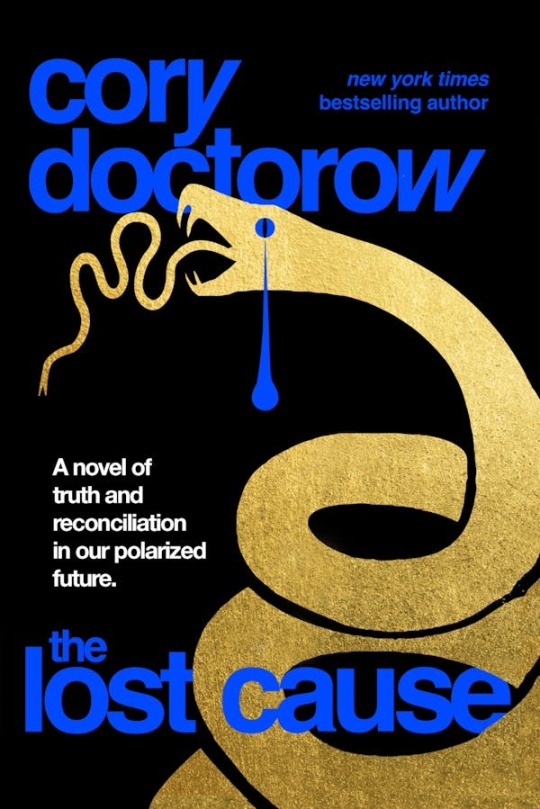
[Image ID: The Tor Books cover for ‘The Lost Cause,’ designed by Will Staehle, featuring the head of the snake on the Gadsen ‘Don’t Tread on Me’ flag, shedding a tear.]
Like I say, this is something I’ve spent a lot of time thinking about — not just how we might get out of this current mess, but how we’ll stay out of it. As is my wont, I’ve worked out my anxieties on the page. My next novel, The Lost Cause, comes out from Tor Books and Head of Zeus in November:
https://us.macmillan.com/books/9781250865939/the-lost-cause
Lost Cause is a post-GND utopian novel about a near-future world where the climate emergency is finally being treated with the seriousness and urgency it warrants. It’s a world wracked by fire, flood, scorching heat, mass extinctions and rolling refugee crises — but it’s also a world where we’re doing something about all this. It’s not an optimistic book, but it is a hopeful one. As Kim Stanley Robison says:
This book looks like our future and feels like our present — it’s an unforgettable vision of what could be. Even a partly good future will require wicked political battles and steadfast solidarity among those fighting for a better world, and here I lived it along with Brooks, Ana Lucía, Phuong, and their comrades in the struggle. Along with the rush of adrenaline I felt a solid surge of hope. May it go like this.
The Lost Cause is a hopeful book, but it’s also a worried one. The book is set during a counter-reformation, where an unholy alliance of seagoing anarcho-capitalist wreckers and white nationalist militias are trying to seize power, snatching defeat from the jaws of the fragile climate victory. It’s a book about the need for truth and reconciliation — and its limits.
As Bill McKibben says:
The first great YIMBY novel, this chronicle of mutual aid is politically perceptive, scientifically sound, and extraordinarily hopeful even amidst the smoke. Forget the Silicon Valley bros — these are the California techsters we need rebuilding our world, one solar panel and prefab insulated wall at a time.
We’re currently in the midst of a decidedly unjust war — the war to continue roasting the planet, a war waged in the name of continuing enrichment of the world’s already-obscenely-rich oligarchs. That war requires increasingly authoritarian measures, increasing violence and repression.
I believe we can win this war and secure a habitable planet for all of us — hell, I believe we can build a world of comfort and abundance out of its ashes, far better than this one:
https://tinyletter.com/metafoundry/letters/metafoundry-75-resilience-abundance-decentralization
But even if that world comes to being, there will be millions of people who hate it, a counter-revolution in waiting. These are our friends, our relatives, our neighbors. Figuring out how to make peace with them — and how to hold their most culpable, most powerful leaders to account — is a project that’s as important, and gigantic, and uncertain, as a just transition is.

Next weekend, I’ll be at San Diego Comic-Con:
Thu, Jul 20 16h: Signing, Tor Books booth #2802 (free advance copies of The Lost Cause— Nov 2023 — to the first 50 people!)
Fri, Jul 21 1030h: Wish They All Could be CA MCs, room 24ABC (panel)
Fri, Jul 21 12h: Signing, AA09
Sat, Jul 22 15h: The Worlds We Return To, room 23ABC (panel)

If you'd like an essay-formatted version of this thread to read or share, here's a link to it on pluralistic.net, my surveillance-free, ad-free, tracker-free blog:
https://pluralistic.net/2023/07/19/stolpersteine/#truth-and-reconciliation

[Image ID: Three 'stumbling stones' ('stolpersteine') set into the sidewalk in the Mitte, in Berlin; they memorialize Jews who lived nearby until they were deported to Auschwitz and murdered.]
#pluralistic#stolpersteine#historians' dispute#Historikerstreit#nazis#godwin's law#mussolini#berlusconi#italy#antifa#fascism#history#truth and reconciliation#the lost cause#denazification
246 notes
·
View notes
Text
By: Yascha Mounk
Published: Oct 16, 2023
On October 7th, the world witnessed the worst slaughter of Jews since the Holocaust. Hundreds of attendees at a music festival were murdered in cold blood. Families hiding in their homes were burned alive. Jewish mothers and fathers were, in an eerie echo of the 1940s, imploring their children to stay quiet lest their would-be murderers should detect their whereabouts. Nearly two hundred people remain in the clutches of a terrorist organization that announced its genocidal intentions in its founding charter.
Many people, of all faiths and convictions, have recognized the enormity of these crimes. Numerous world leaders denounced the terrorist attacks in clear language. Private citizens shared their grief on social media. Millions mourned. But despite the outpouring of support, there has also been a large contingent of people and organizations who stayed uncharacteristically silent—or went so far as to celebrate the carnage.
Even as British Prime Minister Rishi Sunak found clear words about Hamas, for example, the BBC have steadfastly refused to call the Hamas fighters who killed over 1200 people by the name rightfully reserved for those who deliberately target innocent civilians for political ends: terrorists. Meanwhile, many schools and universities, nonprofit organizations and corporations that have over the past years gotten into the business of condemning and commemorating all kinds of tragedies, both small and large, fell uncharacteristically silent.
Some of the most famous universities in the world—including Princeton, Yale and Stanford—only released statements after they came under intense pressure on social media. At Harvard University, it took pressure from alumni and an outraged thread on X by Larry Summers, a former president of the institution, to prompt his successor into belated action.
Worse still were the people and organizations who actively celebrated the pogroms. Multiple chapters of the Democratic Socialists of America, which continues to count Alexandria Ocasio-Cortez among its ranks, encouraged their followers to attend rallies that glorified Hamas’ terror as a righteous form of resistance. As its San Francisco chapter wrote on X, the “weekend’s events” should be seen as part and parcel of Palestinians’ “right to resist.” The Chicago chapter of the Black Lives Matter movement even glorified the terrorists who murdered scores of people at a rave in southern Israel, pairing a now-deleted image of a paraglider with the caption: “I stand with Palestine.”
Meanwhile, academics from leading universities were busy defending these terrorist attacks as a form of anti-colonial struggle. “Postcolonial, anticolonial, and decolonial are not just words you heard in your EDI workshop,” a professor in the school of social work at McMaster University, in Canada, wrote on X. “Settlers are not civilians,” a Yale professor who has written for mainstream outlets including The Washington Post and The New York Times, maintained.
All of this raises a simple question: How could such a notable portion of the left side with terrorists who openly announce their genocidal intentions? Why have key institutions proven so reluctant to denounce one of the worst terrorist attacks in living memory? What, to them, renders the victims of these attacks so much less worthy of solidarity than those of the many other atrocities they have full-throatedly condemned?
The ideological roots of the great obfuscation
In the past days, people have offered many possible explanations for this selective silence. Some focus on outright antisemitism. Others emphasize that an understandable concern over the immoral actions that Israeli governments have taken in the past have blinded many activists to the suffering of innocent Israeli civilians. Others still point out that institutional leaders want to avoid eliciting angry reactions from activists, preferring to stay silent on a sensitive issue out of simple fear for their jobs.
Each of these explanations contains a grain of truth. Some people in the world really are consumed by one of the world’s most ancient hatreds. Others are indeed hyper-focused on everything that Israel has done wrong, a stance that is easier to understand in the case of Palestinians whose ancestors have been displaced than it is in the case of leftist activists who have for many decades found the missteps of the one state that happens to be Jewish worthy of much greater condemnation than similar, or greater, missteps perpetrated by any other. Finally, it is indeed true that many university presidents, nonprofit leaders and corporate CEOs have, among the institutional meltdowns of the past years, come to believe that they must avoid controversy at all costs if they are to keep drawing their generous paychecks.
But the double-standard that has in the past days become so obvious on parts of the left also has a more profound source, one that is ideological rather than practical or atavistic. Over the past decades, a new set of ideas about the role that identity does— and should—play in the world have transformed the very nature of what it means to be on the left, displacing an older set of universalist aspirations in the process.
This novel ideology, which I call the “identity synthesis,” insists that we must see the whole world through the prism of identity categories like race. It maintains that the key to understanding any political conflict is to conceive of it in terms of the power relations between different identity groups. It analyzes the nature of those power relations through a simplistic schema that, based on the North American experience, pits so-called whites against so-called “people of color.” Finally, it imposes that schema—in a fashion that might, in the academic jargon of the day, ironically be called “neo-colonial”—on complex conflicts in faraway lands.
The trouble with structural racism
Many advocates of the identity synthesis rightly point out that an account of racism which focuses purely on individual beliefs or motivations runs the danger of concealing important forms of injustice. Even if everyone has the best of intentions, the after effects of historical injustices can ensure that many immigrant students attend underfunded public schools or that many members of ethnic minorities suffer disadvantages in the housing market. It therefore makes sense, they argue, to add a new concept to our vocabulary: structural racism.
As the Cambridge Dictionary explains, structural racism consists of “laws, rules, or official policies in a society that result in and support a continued unfair advantage to some people and unfair or harmful treatment of others based on race.” By pointing out that some forms of racism are “structural” in this way, we are better able to capture—and hopefully remedy—circumstances in which members of some racial groups suffer significant disadvantages for reasons other than individual bias.
This is plausible insofar as it goes. To understand contemporary America, it is indeed helpful to add the notion of structural racism to our conceptual toolbox. But in recent years, many advocates of the identity synthesis have gone one step further: they have begun to claim that this more recent concept of structural racism should altogether supplant the older concept of individual racism.
Rather than acknowledging that there are two different conceptions of racism, each of which helps to elucidate real injustices in its own way, parts of the left have come to conceptualize racism in an exclusively structural form. “Racism,” one online guide puts the growing consensus, “is different from racial prejudice, hatred, or discrimination” because it must involve “one group having the power to carry out systematic discrimination through the institutional policies and practices of the society and by shaping the cultural beliefs and values that support those racist policies and practices.”
In its most radical form, this claim entails that it is impossible for a member of a historically marginalized group to be racist toward a member of a historically dominant group. Because racism does not have anything to do with individual beliefs or attributes, and members of groups that are comparatively powerless are incapable of carrying out “systematic discrimination” against members of groups that are comparatively powerful, even the vilest forms of hatred need not count as racist. As an article in Vice put it, “It’s literally impossible to be racist to a white person.”
The result has, again and again, been a form of selective blindness when members of minority groups have expressed bigoted attitudes toward supposedly more privileged groups, including those that are themselves minorities. This inability to recognize the importance of the more traditional conception of racism makes it impossible to name what is happening when members of one minority group are the victims of hate crimes committed by members of another minority group that is now considered to suffer from greater disadvantages. In December 2019, for example, two terrorists killed a police detective and then murdered three people at a kosher grocery store in Jersey City, close to New York. They had a long trail of posting antisemitic content on social media; one assailant was a follower of the Black Hebrew Israelites, a movement which holds overtly antisemitic beliefs. But because the assailants were black, and the victims perceived as white, many news outlets failed to categorize the shooting as racist, or to treat it as a hate crime, for an astoundingly long period of time.
The trouble with white privilege
The idea that all racism is structural is deeply damaging because it makes it hard for institutions to open their eyes to forms of discrimination towards members of groups that are supposedly dominant. In practice, it is made even worse by the fact that many people on the left have now embraced a very simplistic notion of who is dominant and who is marginalized—one that imposes American conceptions of race onto situations in which they distort rather than illuminate underlying realities.
In North America, the most salient—though by no means the only—racial divide has for centuries been that between whites and blacks. In assessing which group is supposedly privileged in a foreign conflict, many Americans therefore think it is enough to figure out who is “white” and who is a “person of color.” This makes it impossible for them to understand conflicts in which the relevant political cleavage does not neatly pit whites against blacks (or, more broadly, “whites” against “people of color”).
Whoopi Goldberg, for example, has repeatedly insisted that the Holocaust was “not about race.” Since, from an American point of view, both Jewish and non-Jewish Germans are white, she found it impossible to get her head around an ideology that centers around racial distinctions between them. “You could not tell a Jew on a street,” she wrongly claimed. “You could find me. You couldn’t find them.”
In the case of Israel, this has led most observers to assume that there is a clear division in racial roles between Israelis and Palestinians: In their mind, Israelis are white, Palestinians “people of color.” And since white people have historically held power over non-white people, this reinforces the impression that it is impossible for Israelis to be victims of racial hatred.
But this perspective once again turns out to be so simplistic as to verge on the delusional. Ms. Goldberg was wrong to believe that Nazis were unable to spot Jews; though some Jews did manage to survive by passing themselves off as “Aryan,” many Nazis—and their collaborators in Central Europe—were highly effective at spotting people whom they suspected of being Jewish.
More importantly, the assumption that most of the victims of last Saturday’s terrorist attacks were “white” Jews with roots in Europe is simply wrong. It’s not just that there are black Israeli Jews whose ancestors immigrated from Ethiopia, or that Hamas’ victims included many migrants from Thailand and Nepal; it’s also that Israel as a whole is now home to more Mizrahi Jews, who hail from the Middle East, than Ashkenazi Jews, whose ancestors long lived in Europe.
I will leave it up to others to speculate on whether the visual differences between Jewish and non-Jewish Germans are more or less stark than those between Arabs and Mizrahi Jews. But the prominence of Mizrahi Jews also betrays yet another way in which attempts to fit the Israel-Palestine conflict into a simplistic conceptual scheme go badly wrong.
The trouble with Decolonialism
The actual demographic composition of the country makes claims that Israeli civilians should be seen as settlers who are fair game for terrorist attacks doubly cynical. They are cynical because no political cause, however righteous, justifies the deliberate targeting of babies and grandmothers—neither on the Israeli nor on the Palestinian side. And they are also cynical because the great majority of Mizrahi Jews have, since the end of the Second World War, been violently displaced from the Middle Eastern countries in which their ancestors had lived for hundreds of years, with no country other than the world’s only Jewish state willing to offer them a safe harbor.
Postcolonial apologists for terrorist organizations like Hamas and Hezbollah love to invoke Frantz Fanon’s glorification of violence. The problem is not just that their tendentious reading of his work overlooks the ways in which violence can be morally corrosive and politically destructive; it’s also that the implied analogy between the so-called pied noirs (white settlers in Algeria who could safely return to the French metropolis if they chose to do so) and Mizrahi Jews (who would be neither welcome nor safe if they were to return to Iran or Iraq, to Morocco or Algeria) is so misleading as to be perverse.
And yet, this misleading analogy governs how many on the left ascribe the role of victim and perpetrator, explaining why dozens of student groups at Harvard could claim that Israel is somehow “entirely responsible” for Hamas’ decision to murder more than 1,000 civilians. At a deeper level, they even help to explain how left-wing activists and academics can contrive to perceive a deeply authoritarian and overtly theocratic regime that is explicitly hostile to sexual minorities as a progressive movement.
According to many progressives, what determines whether a movement should count as left-wing or right-wing is based on whether it claims to be fighting on behalf of those they believe to be marginalized. Since Hamas is an organization of underprivileged “people of color” fighting against “privileged” “white” Jews, it must be seen as part of a global struggle against oppression. Even though its program—which incidentally includes the violent suppression of sexual minorities within the Gaza strip—is reminiscent of some of the world’s most brutal far-right regimes, those marching in support of Hamas consider them to be part of the global struggle for progressive values. As Judith Butler, a central figure in this intellectual tradition, said in 2006, it is “very important” to classify both Hamas and Hezbollah as “social movements that are progressive, that are on the Left, that are part of a global Left.”
It’s time for a reckoning with bad ideas on the left
Over the past few days, some observers have started to recognize how badly parts of the left have gone astray. Many leftist academics were genuinely horrified to see their friends and colleagues celebrate the murder of babies. There has been widespread outrage at the decision of influential movements like Black Lives Matter to idolize terrorists. Shri Thanedar, a U.S. Congressman, has publicly renounced his membership in the DSA.
This is a good start. In a free country, anyone must be free to express their support of extremist organizations, however vile; the move by many European governments to suppress pro-Hamas protests or to jail those who glorify the terrorist attacks is a betrayal of the liberal principles on which our opposition to that execrable organization should be based. But mainstream institutions can and absolutely should stop uncritically embracing organizations, like BLM, that openly glorify terrorists. And citizens should demand that moderate political parties, like the Democrats, cease to tolerate in their midst members of organizations, like the DSA, that equivocate about the moral permissibility of mass murder.
Black lives matter, greatly. Colonialism remains one of the greatest historical injustices. Even before this week, though, it should have become clear that the recognition of these important facts is fully compatible with serious concerns about the organizations that now speak on behalf of the Black Lives Matter movement, and about a postcolonial discourse that all too often glorifies violent resistance to anybody who, however simplistically, is judged to be an “oppressor.”
Many advocates of the identity synthesis are genuinely motivated by good intentions. But key parts of this ideology now provide cover for forms of racism and dehumanization of vulnerable groups that should be anathema to anybody who genuinely cares about the historical values of the left. It is time for the many reasonable people who have bit their tongue as these ideas took on enormous power in mainstream institutions to raise their voice against them.
The suffering to come
Any humane outlook on the world must recognize that civilians never deserve to suffer due to the group into which they were born or because of actions committed by those who claim to speak on their behalf. I feel as much empathy for the Palestinian children who are dying in bombardments of Gaza as I do for the Jewish children who were killed in Hamas’ attack on Israel. Insinuations of collective responsibility are vile, even when voiced in response to a disgusting terrorist attack. Each civilian death is a tragedy on the same moral order.
While every civilian victim is in equal measure undeserving of their tragic fate, moral philosophers have for centuries recognized a key distinction governing the conduct of war. Military action that is directed against military targets may be legitimate; while some civilian deaths are foreseeable as a consequence of such attacks, soldiers must undertake to minimize them as far as possible. By contrast, military action is always illegitimate when the killing of innocents is the goal, not an unintended side effect.
This set of standards helps to explain how spectacularly Hamas, the organization that started the current war with a long-planned surprise attack that killed over a 1,000 men and women, toddlers and grandmothers, Ashkenazim and Mizrahim, Jews and non-Jews, Israelis and Thais and Americans and Canadians and Germans and Chinese, failed to obey the most basic moral rules. Now, it should also guide our assessment of Israel’s unfolding actions in Gaza.
This is a war Israel did not choose, and it has every right to defend itself. No democracy would tolerate on its borders the presence of a terrorist organization that has just demonstrated its willingness to engage in the indiscriminate slaughter of its civilian population; it would be the height of hypocrisy for people living in the safety of Berlin or Paris, of London or New York, to expect Israelis to do so.
But the military offensive against Hamas is extremely difficult because the terrorist organization has deliberately based so much of its military infrastructure in the midst of civilian settlements; because it is now doing what it can to stop its own people from moving away from military targets; and because Egypt, worried about the potential for Hamas fighters to destabilize the government or even perpetrate terrorist attacks within its own borders, has refused safe passage for most Gazans. All of this explains why it is so hard for Israel to accomplish its legitimate goals without causing numerous civilian casualties. But it does not constitute permission for Israel to adopt the logic of collective punishment by cutting off access to food and drinking water ahead of a full-scale invasion, or absolve the country’s armed forces from doing what they can to minimize the number of civilian casualties. As and when Israel fails to do so, full-throated criticism of its government is fully justified.
The left has the potential to speak powerfully to this moment. To do so, it needs to jettison the ideological jargon that has made so many supposed idealists fall for the ever-present temptation to contrive reasons why the suffering of one side is outrageous while the suffering of the other side is glorious. To retain our moral composure in the ugly days and weeks now on the horizon, we must recover a moral universalism that, even in the darkest hour, reminds us of our shared humanity—and unhesitatingly laments the death of innocents, irrespective of the group to which they belong.
Yascha Mounk is the founder and editor-in-chief of Persuasion. His latest book is The Identity Trap: A Story of Ideas And Power In Our Time.
#Yascha Mounk#antisemitism#identity synthesis#identity politics#Israel#Palestine#hamas#islamic terrorism#islam#islamic violence#intersectionality#BLM#Black Lives Matter#decolonization#postcolonial theory#religion is a mental illness
29 notes
·
View notes
Text
by Dion J. Pierre
Penn has been embroiled in controversy this academic year stemming from concerns over antisemitism. Last month, a pro-Palestinian protest on campus devolved into intimidation of Jewish students, as speakers berated pro-Israel counter-protesters in the wake of Hamas’ Oct. 7 terrorist onslaught against Israel.
“The Israeli Jew has bastardized Judaism! Bastardized it! Trampled on it! How could you let this genocidal regime crap all over your God and your religion like this?” one speaker said at the protest, according to footage seen by The Algemeiner. “How can you, as a people who have seen the same amount of oppression in the past, stand by the same genocidal tactics, and lies, and methods that they use on our people? How could you stand for that? Look at you — you’re not even looking at this direction. You’re scared. You’re scared of being wrong.”
Addressing Jewish students who were standing nearby holding a counter-protest, the speaker continued. “Israelis! Hello, Israelis! Look at me! If I asked you to give me one justification, it would be a lie, misinformed, or consumed in post 9/11 dogma. Ask yourself, Israelis: Do you want to continue living in this false narrative, this fairy tale, or do you want to actually talk to the people? That [Israeli] flag has murdered.”
He concluded: “I hope you sh—t when you go on your bed tonight. I hope your dreams are filled with the horrors of dead Palestinian babies, burned Palestinian children, dead Palestinian women, a hundred square miles, leveled. I hope this scorches your brain. I hope you are terrified of this, because you should be.”
Professor Eve Troutt Powell, who teaches history of the modern Middle East at the university, accused Israel of not learning “the lessons of the Holocaust” shouting at the demonstration, “That was the lesson! Never again! This now is never again!”
Professor Huda Fakhreddine, who teaches Arabic literature, added, “Israel is the epitome of antisemitism … it desecrates the memory of the Holocaust victims. It humiliates every Jewish person.”
Days later, members of Alpha Epsilon Pi (AEPi), a traditionally Jewish fraternity, discovered graffiti saying “The Jews R Nazis” on the door of a property next to their house. The campus’ Division of Public Safety was investigating the vandalism as a potential hate crime.
Before the war in Gaza, the university came under fire in September for refusing to cancel or move a “Palestine Writes Literature Festival” held on campus. The event, which caused outrage and heightened tensions across campus, featured several activists who promoted conspiracies about Jewish power and called for violence against Israel.
One day before “Palestine Writes” took place, an unidentified male walked into the university’s Hillel building behind a staffer and shouted “F—k the Jews” and “Jesus Christ is king!” before overturning tables, podium stands, and chairs, according to students and school officials who spoke with The Algemeiner.
31 notes
·
View notes
Text



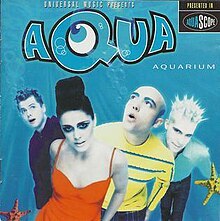





the NO-SKIP albums: a tag game 🎶💖
rules: share the albums that you can listen to nonstop. those lightning in a bottle-albums that scratch ur brain just right. every single track, an absolute banger. u could not skip one if u tried. no notes. stunning, show-stopping, immaculate. ur no-skip albums. 🔎 bonus & optional (but imo, v fun) rules:1) add a track rec for us to listen to! AND2) share ur favorite line(s) from that track! 👀
tagged by @stephendorff thank you !! this was so so so so fun !
tagging: @bladeoffrontiers @js337 @costashoffman @angels-holocaust @thegoodgowest
🎧 album info/track recs/my favorite lines under the cut!! ↓↓
Album: Mezmorize - system of a down
song rec: question!
🎶 Do we, do we know
When we fly
When we, when we go
Do we die?
-- this band has helped me go through middle school and beyond. this song is just a fav and the whole album is a super big vibe
Album: never had to leave - matt maeson
song rec: never had to leave
🎶 So I'm leaving you alone, leaving you alone
I'm a spacecraft on my way back
--song is personal to me, helped me get through some things in the last two years
Album: prophecy of ragnarök - brothers of metal
song rec: powersnake
🎶 Eyes glowing red in the dark on the ocean floor
Mighty serpent
Roaring in the deep, he's a beast that devours all
And the serpent awakes
-- first song i heard from this band and absolutely became obsessed. fits my entire attitude and my practice
Album: aquarium - aqua
song rec: calling you
🎶I-I-I can't get my message through
Why-y-y don't you pick up the phone
All my love is running down the line
But you won't receive it, no, no
-- this entire album is my childhood. brings memories with my sister and happier times. this song has always been my fav
Album: a day without rain - enya
song rec: wild child
🎶Every summer sun
Every winter evening
Every spring to come
Every autumn leaving
You don't need a reason
Let it all go on and on
-- another childhood album that is held close to my heart and holds dear memories with my mom ♥
Album: demon days - gorillaz
song rec: kids with guns
🎶Now they're turning us into monsters
Turning us into fire
Turning us into monsters
It's all desire, it's all desire, it's all desire
-- this band was MASSIVE hit with me back in middles school and will always be such a vibe. this song just has a beautiful energy to it but the lyrics not so much. still, this band helped me finds my creative part of my soul back in the day
Album: stick season - noah kahan
song rec: you're gonna go far
🎶We're overdue for a revival
We spent so long just getting by
But that's the thing about survival
Who the hell-, who the hell likes livin' just to die?
-- this song. this album. been awhile since an album and songs got me crying and hitting super close to home.
Album: starcatcher - greta van fleet
song rec: meeting the master
🎶What a day to meet the master
I've been waiting for so long
Final day to meet the master
It's my time to go home
-- is anyone really shocked this is the song im picking? of course now. i literally have this album and song inspire a tattoo. been a master fan of them since their first album came out. saw them live later 2023. i cried and was moved in all the ways one can be moved.
Album: hollywoods bleeding - post malone
song rec: im gonna be
🎶Hey, why you so mad? (Why you so mad?)
Never look back (Never look back)
Can't let up the gas, we movin' so fast, yeah, let's make it last
-- my first real concert and album and song helped me through a serious tough time with a friendship falling apart and figuring out who i am.
6 notes
·
View notes
Photo

January 27, 2023: Crown Princess Victoria attends a memorial service at Eric Ericsonhallen in Stockholm (Skeppsholmen Church) in observance of International Holocaust Remembrance Day.
#crown princess victoria#swedish royal family#january 2023#church services#holocaust remembrance day#memorial services#victoria's engagements#mine
11 notes
·
View notes
Text

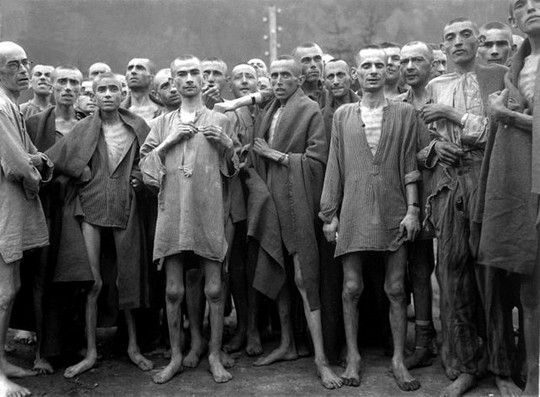

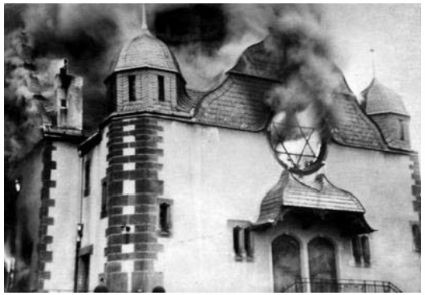
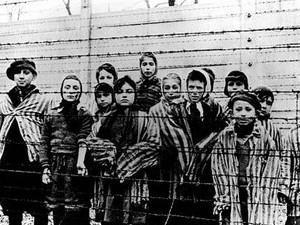
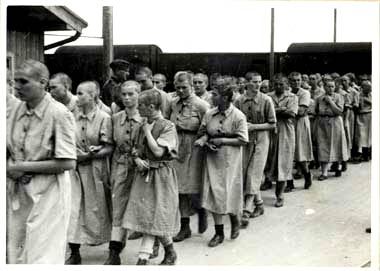



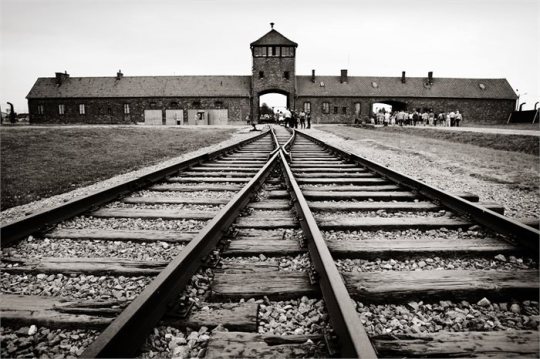
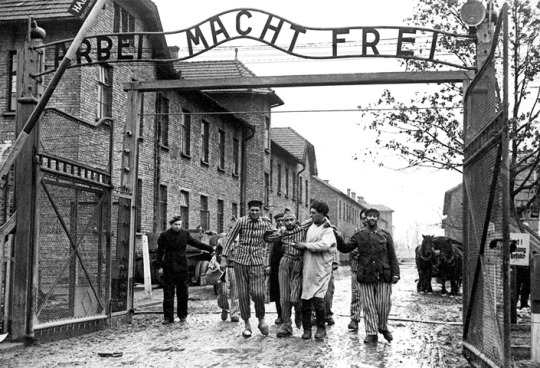
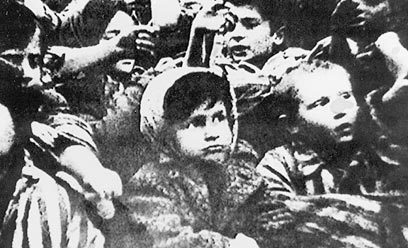
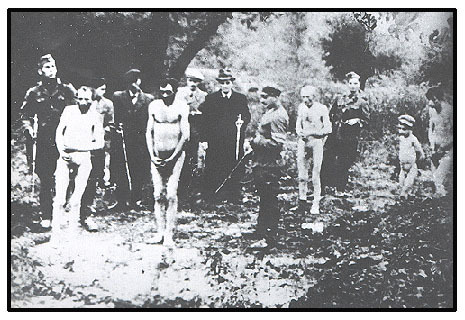
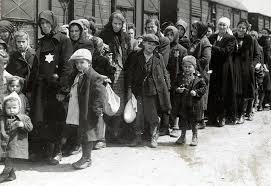
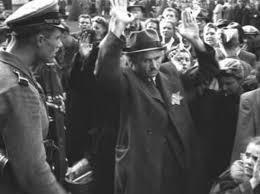


יום הזכרון לשואה ולגבורה תשפ"ג
Yom HaShoah (Holocaust Memorial Day) 2023
#yom hashoah#holocaust memorial day#holocaust remembrance day#holocaust#יום השואה#יום הזכרון לשואה ולגבורה
46 notes
·
View notes
Text
The Struggle of Conviction: A Pro-Israeli Voice in an all-Palestinian Family
The Struggle of Conviction: A Pro-Israeli Voice in an all-Palestinian Family
Date: October 16, 2023
In the midst of today's turbulent events, I feel compelled to share my deeply personal journey. At 34 years old, recently marking my 34th birthday, I reflect upon a life born into a devout Islamic Palestinian family. A life where the value of unity was instilled in me from an early age, but as time passed, it became increasingly apparent that my beliefs were evolving differently.
Interestingly, I developed a strong affinity for Christmas over the years – a holiday imbued with the magic of shimmering lights, grand trees, and endless decorating possibilities. This was a stark contrast to my Islamic upbringing, where Christmas had no place, and festively adorned trees were nowhere to be found. Yet, year after year, just outside my window, I would see my neighbors' beautifully adorned Christmas tree. Returning to school after the Christmas break, my friends and classmates would eagerly share their holiday experiences and gifts, while I silently grappled with the absence of such celebrations in my life. It was a challenge, but with time, I learned to adapt.
I certainly didn't fit the mold of the ideal Muslim. Failing to observe the fast-during Ramadan, for instance, led to a cascade of judgment and shame. From my earliest memories, my mother fervently impressed upon me the dire consequences of not meeting specific religious requirements, warning of eternal damnation. Within my family, an unspoken consensus had taken hold: I wasn't just destined for hell, but I was headed for its deepest depths. Neglecting to pray five times a day or to observe the fast, as my family believed, was seen as falling short of God's expectations. After enduring a ceaseless stream of such admonitions, I began to internalize them.
It was only after receiving a cancer diagnosis that I realized the futility of striving to meet my parents' religious expectations. I had to come to terms with the understanding that winning that battle was an impossibility. In those challenging moments, a mentor's words echoed in my mind: "Choose Life," inspired by the 1996 British black comedy-drama film "Trainspotting," directed by Danny Boyle. The day I was diagnosed with Hodgkin's Lymphoma, alongside a tumor in my chest, I found myself in a hospital room, surrounded by Palestinians, my parents, and a host of relatives – some of whom I hadn't seen in years and others I had never met. It was in this pivotal moment that I made a defining decision.
In that hospital room, weighed down by my circumstances, I confidently marked the "Judaism" box under religion on the form. This form would pass through various hands, and the reactions I encountered in response to my choice were nothing short of bewildering. While judgmental looks were cast my way, I met them with a radiant smile.
In summary, my journey has led me to remission and well-being, but it has also exposed me to deep-seated prejudices within my family against Jewish people. Over the years, I've overheard my parents and relatives expressing derogatory remarks about Jewish individuals, suggesting that they were in defiance of God and deserving of their misfortunes. Growing up, Jews were often portrayed as an ominous presence, lurking like a shadow in the background. It was only when I learned about the Holocaust that I realized the long-standing fear-driven narrative that had persisted for generations.
Even before I had the opportunity to study World War II in school, I would question my father about Hitler and his actions. The explanations were consistently simplified: "The Jews were blamed for economic hardships, and people were suffering. What else could have happened?" This narrative conveniently omitted any reference to the complex historical context, including World War I and the Treaty of Versailles.
As I delved deeper into the history of World War I, I made a disconcerting discovery: the "stabbed in the back myth" had not faded into obscurity but had found a contemporary resurgence. This myth centered on the belief that the German Army's defeat in the First World War didn't occur on the battlefield but resulted from betrayal by communists, socialists, and Jewish individuals on the home front.
What struck me as profoundly unsettling was that, this time, it was my own parents who were articulating these beliefs. Though I could never fully comprehend the depth of this hatred, as someone who has endured bullying in life, I can empathize with the emotions involved. However, I firmly acknowledge that there's no valid comparison between the struggles I've faced and the enduring hardships that the Jewish community has historically and continues to endure.
With recent events in Israel on October 7th, I found myself grappling with a sense of shame regarding my Palestinian heritage. The scenes I witnessed were deeply distressing, with Hamas involved in brutal acts against innocent men, women, and children. The chilling cries of "God is great" in Arabic only added to the anguish. This experience has reinforced my belief that it is often the self-proclaimed "god-fearing" individuals who, paradoxically, perpetrate the most harm.
The Israeli-Palestinian conflict transcends mere territorial disputes; it is profoundly rooted in religious differences. It has evolved into a religious war between Muslims and Jews, each side fervently asserting their faith. I've long perceived Islam as a demanding faith, one that places a continuous emphasis on submission to God. Growing up, I couldn't help but envy my Christian friends who appeared to have a less burdensome religious experience – attending church once a week and joyfully celebrating Christmas. It seemed as though they faced fewer challenges compared to my upbringing in a devout Islamic household, leaving me with the impression that they received more for less.
In conclusion, I find myself standing alone in my perspective, firmly believing that the Jews have a rightful claim to Israel, especially after the horrors of the Holocaust. While some may argue that the land belongs to the Palestinians, history suggests otherwise. Following the fall of the Ottoman Empire, Palestine fell under British rule. While the British made promises to both sides, the only promise that materialized was the creation of Israel. It's a historical fact. I've never shared my family's abhorrent antisemitic views, and I never will. I stand in solidarity with the Jewish people of Israel; they deserve their homeland, unequivocally. These words may draw criticism and hostility, but I'm undeterred. Antisemitism must be eradicated, and Palestinians must confront the historical reality.
#life#palestine#hamas attack#feeling alone#first post#american#israel#islam#christianity#judaism#america
11 notes
·
View notes
Text

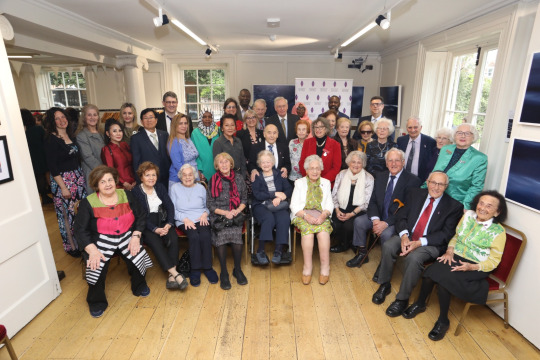
4 May 2023
The Duke of Gloucester attended the Holocaust Memorial Day Trust Tea Party at Lauderdale House, Waterlow Park, Highgate Hill, Highgate, London N6.
📸: Holocaust Memorial Day Trust
25 notes
·
View notes
Text
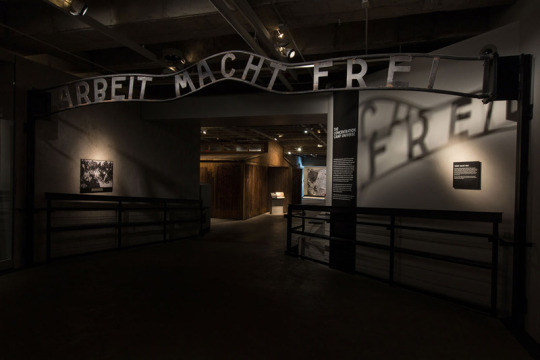
[Holocaust Museum]
* * * *
Powerful speech.
"This ancient hatred of Jews didn’t begin with the Holocaust; it didn’t end with the Holocaust, either, or after — or even after our victory in World War Two. This hatred continues to lie deep in the hearts of too many people in the world, and it requires our continued vigilance and outspokenness.
That hatred was brought to life on October 7th in 2023. On a sacred Jewish holiday, the terrorist group Hamas unleashed the deadliest day of the Jewish people since the Holocaust. "
REMARKS BY PRESIDENT BIDEN TODAY, AT THE U.S. HOLOCAUST MEMORIAL MUSEUM'S ANNUAL DAYS OF REMEMBRANCE CEREMONY:
"During these sacred Days of Remembrance, we grieve. We give voice to the 6 million Jews who were systematically targeted and murdered by the Nazis and their collaborators during World War Two. We honor the memory of victims, the pain of survivors, the bravery of heroes who stood up to Hitler’s unspeakable evil. And we recommit to heading and heeding the lessons that [of] one of the darkest chapters in human history, to revitalize and realize the responsibility of 'never again.'
Never again, simply translated for me, means 'never forget.' Never forget. Never forgetting means we must keep telling the story. We must keep teaching the truth. We must keep teaching our children and our grandchildren.
And the truth is we are at risk of people not knowing the truth.
That’s why, growing up, my dad taught me and my siblings about the horrors of the Shoah at our family dinner table. That’s why I visited Yad Vashem with my family as a senator, as vice president, and as president. And that’s why I took my grandchildren to Dachau, so they could see and bear witness to the perils of indifference, the complicity of silence in the face of evil that they knew was happening.
Germany, 1933. Hitler and his Nazi party rise to power by rekindling one of the world’s oldest forms of prejudice and hate: antisemitism. His rule didn’t begin with mass murder. It started slowly across economic, political, social, and cultural life: propaganda demonizing Jews; boycotts of Jewish businesses; synagogues defaced with swastikas; harassment of Jews in the street and in the schools; antisemitic demonstrations, pogroms, organized riots.
With the indifference of the world, Hitler knew he could expand his reign of terror by eliminating Jews from Germany, to annihilate Jews across Europe through genocide the Nazi’s called the 'Final Solution' — concentration camps, gas chambers, mass shootings.
By the time the war ended, 6 million Jews — one out of every three Jews in the entire world — were murdered.
This ancient hatred of Jews didn’t begin with the Holocaust; it didn’t end with the Holocaust, either, or after — or even after our victory in World War Two. This hatred continues to lie deep in the hearts of too many people in the world, and it requires our continued vigilance and outspokenness.
That hatred was brought to life on October 7th in 2023. On a sacred Jewish holiday, the terrorist group Hamas unleashed the deadliest day of the Jewish people since the Holocaust.
Driven by ancient desire to wipeout the Jewish people off the face of the Earth, over 1,200 innocent people — babies, parents, grandparents — slaughtered in their kibbutz, massacred at a musical festival, brutally raped, mutilated, and sexually assaulted. Thousands more carrying wounds, bullets, and shrapnel from the memory of that terrible day they endured. Hundreds taken hostage, including survivors of the Shoah.
Now, here we are, not 75 years later but just seven and a half months later, and people are already forgetting. They’re already forgetting that Hamas unleased this terror, that it was Hamas that brutalized Israelis, that it was Hamas who took and continues to hold hostages. I have not forgotten, nor have you, and we will not forget.
And as Jews around the world still cope with the atrocities and trauma of that day and its aftermath, we’ve seen a ferocious surge of antisemitism in America and around the world: vicious propaganda on social media, Jews forced to keep their — hide their kippahs under baseball hats, tuck their Jewish stars into their shirts.
On college campuses, Jewish students blocked, harassed, attacked while walking to class.
Antisemitism — antisemitic posters, slogans calling for the annihilation of Israel, the world’s only Jewish State.
Too many people denying, downplaying, rationalizing, ignoring the horrors of the Holocaust and October 7th, including Hamas’s appalling use of sexual violence to torture and terrorize Jews.
It’s absolutely despicable, and it must stop.
Silence — silence and denial can hide much, but it can erase nothing. Some injustices are so heinous, so horrific, so grievous, they cannot be muri- — buried, no matter how hard people try.
In my view, a major lesson of the Holocaust is, as mentioned earlier, it’s not — was not inevitable. We know hate never goes away; it only hides. And given a little oxygen, it comes out from under the rocks.
But we also know what stops hate. One thing: all of us.
The late Rabbi Jonathan Sacks described antisemitism as a virus that has survived and mutated over time. Together, we cannot continue to let that happen.
We have to remember our basic principles as a nation. We have an obligation — we have an obligation to learn the lessons of history so we don’t surrender our future to the horrors of the past. We must give hate no safe harbor against anyone — anyone.
From the very founding — our very founding, Jewish Americans, who represent only about 2 percent of the U.S. population, have helped lead the cause of freedom for everyone in our nation. From that experience, we know scapegoating and demonizing any minority is a threat to every minority and the very foundation of our democracy.
So, in moments like this, we have to put these principles that we’re talking about into action.
I understand people have strong beliefs and deep convictions about the world. In America, we respect and protect the fundamental right to free speech, to debate and disagree, to protest peacefully and make our voices heard.
I understand. That’s America.
But there is no place on any campus in America — any place in America — for antisemitism or hate speech or threats of violence of any kind — whether against Jews or anyone else.
Violent attacks, destroying property is not peaceful protest. It’s against the law. And we are not a lawless country. We’re a civil society. We uphold the rule of law.
And no one should have to hide or be brave just to be themselves.
To the Jewish community, I want you to know I see your fear, your hurt, and your pain.
Let me reassure you, as your President, you are not alone. You belong. You always have, and you always will.
And my commitment to the safety of the Jewish people, the security of Israel, and its right to exist as an independent Jewish state is ironclad, even when we disagree.
My administration is working around the clock to free remaining hostages, just as we have freed hostages already, and we will not rest until we bring them all home.
My administration, with our Second Gentleman’s leadership, has launched our nation’s first National Sec- — Strategy to Counter Antisemitism that’s mobilizing the full force of the federal government to protect Jewish communities.
But — but we know this is not the work of government alone or Jews alone. That’s why I’m calling on all Americans to stand united against antisemitism and hate in all its forms.
My dear friend, and he became a friend, the late Elie Wiesel, said, quote, “One person of integrity can make a difference.” We have to remember that now more than ever.
Here in Emancipation Hall in the U.S. Capitol, among the towering statues of history, is a bronze bust of Raoul Wallenberg. Born in Sweden as a Lutheran, he was a businessman and a diplomat. While stationed in Hungary during World War Two, he used diplomatic cover to hide and rescue about 100,000 Jews over a six-month period.
Among them was a 16-year-old Jewish boy who escaped a Nazi labor camp. After the war ended, that boy received a scholarship from the Hillel Foundation to study in America. He came to New York City penniless but determined to turn his pain into purpose, along with his wife, also a Holocaust survivor. He became a renowned economist and foreign policy thinker, eventually making his way to this very Capitol on the staff of a first-term senator.
That Jewish refugee was Tom Lantos, and that senator was me.
Tom and his wife, Annette, and their family became dear friends to me and my family. Tom would go on to become the only Holocaust survivor ever elected to Congress, where he became a leading voice on civil rights and human rights around the world.
Tom never met Raoul, who was taken prisoner by the Soviets, never to be heard from again. But through Tom’s efforts, Raoul’s bust is here in the Capitol.
He was also given honorary U.S. citizenship — only the second person ever, after Winston Churchill.
And the Holocaust Museum here in Washington is located on a roal- — a road in Raoul’s name.
The story of the power of a single person to put aside our differences, to see our common humanity, to stand up to hate. And it’s an ancient story of resilience from immense pain, persecution to find hope, purpose, and meaning in life we try to live and share with one another. That story endures.
Let me close with this. I know these Days of Remembrance fall on difficult times. But we all do well to remember these days also fall during the month we celebrate Jewish American heritage — a heritage that stretches from our earliest days to enrich every single part of American life today.
Great American — great Jewish American named Tom Lantos used the phrase, 'The veneer of civilization is paper thin. We are its guardians, and we can never rest.'
My fellow Americans, we must — we must be those guardians. We must never rest. We must rise against hate, meet across the divide, see our common humanity.
And God bless the victims and survivors of the Shoah.
May the resilient hearts, the courageous spirit, and the eternal flame of faith of the Jewish people forever shine their light on America and around the world, pray God.
Thank you all."
[Thanks Mikhail Iossel]
4 notes
·
View notes